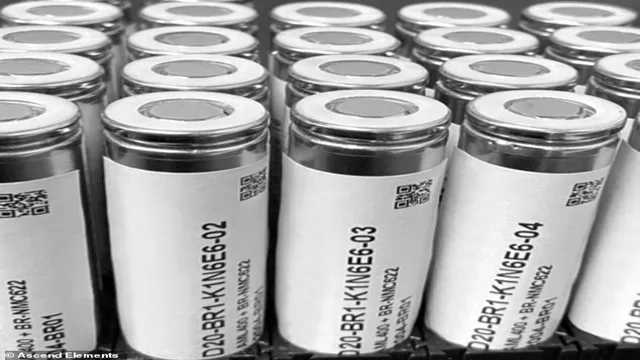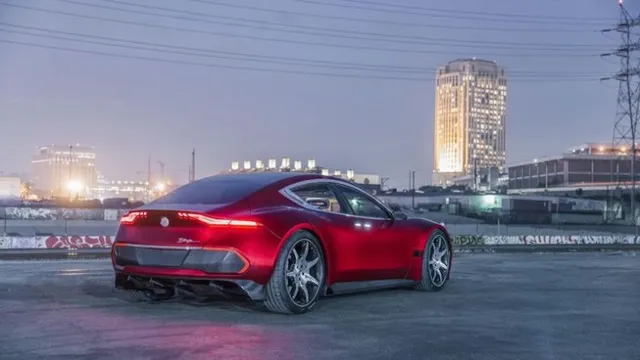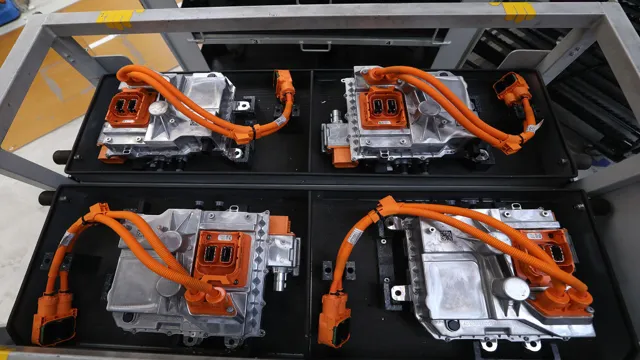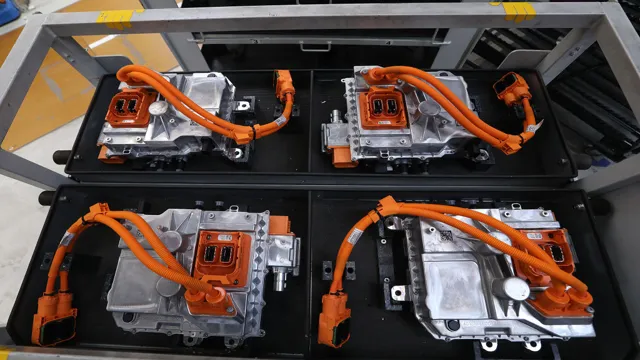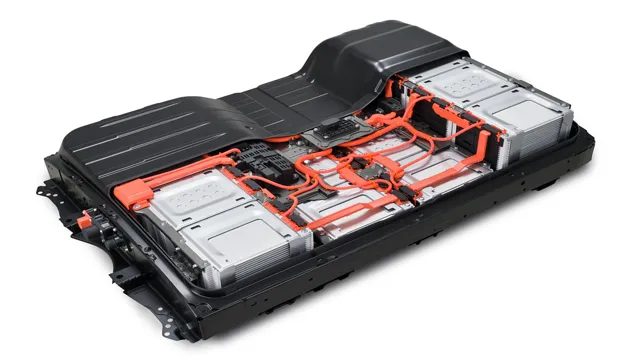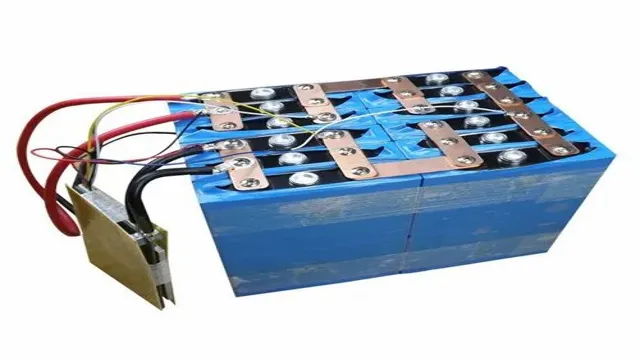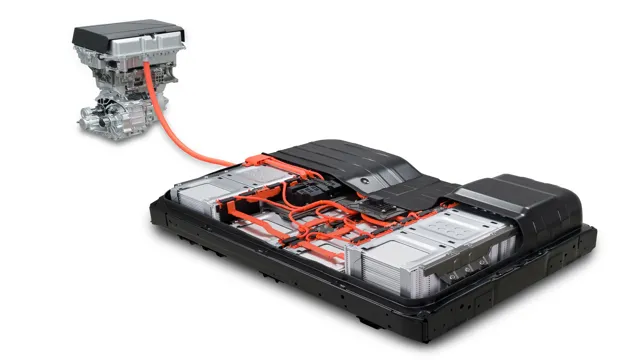Debunking the Myth: The Truth About Radioactive Electric Car Batteries
Electric cars are becoming increasingly popular as people look for ways to reduce their carbon footprint and save on fuel costs. One of the biggest factors contributing to this rise in popularity is the improvement in electric car batteries. These batteries not only provide greater range, but they also charge faster and last longer than previous generations.
With all these benefits, it’s no wonder that electric car batteries are now seen as a cornerstone of the electric vehicle market. But how do they work, and what makes them so different from traditional car batteries? Let’s take a closer look.
What are electric car batteries made of?
Many people are concerned about the safety and environmental impact of electric car batteries, and one common question is whether they are radioactive. The truth is that while some types of batteries contain small amounts of radioactive materials, such as nickel-cadmium batteries, the majority of batteries used in electric cars do not. Instead, they are typically made from a combination of metals, like lithium, cobalt, nickel, and manganese, which are all non-radioactive.
However, it’s worth noting that the mining and production of these materials can have significant environmental impacts, and the recycling and disposal of batteries also requires careful handling to prevent contamination of soil and water sources. Overall, while electric car batteries do not pose a significant radioactive risk, it’s important to consider their entire life cycle and environmental impact.
Materials in electric car batteries
Electric car batteries are a critical component in powering electric vehicles. These batteries are typically made up of several materials, including lithium-ion, cobalt, nickel, and manganese. Lithium-ion is a common choice due to its high energy density, which provides more power to the vehicle while being lighter in weight.
However, cobalt has come under scrutiny due to ethical concerns surrounding the mining and production of the material. As a result, there has been an effort to reduce or eliminate the use of cobalt in electric car batteries. Nickel and manganese are also commonly used, as they provide stability and durability to the battery.
In addition to these materials, a polymer separator is used to separate the positive and negative electrodes in the battery, and a conductive material is used to connect the electrodes. Overall, the materials used in electric car batteries are carefully chosen to create a powerful and efficient energy source for electric vehicles while being environmentally responsible and sustainable.

Different types of batteries
Electric car batteries are typically made up of lithium-ion cells, a type of rechargeable battery that has become the standard in the industry due to its high energy density. These cells are made up of a positive electrode (cathode), a negative electrode (anode), and an electrolyte that allows the flow of ions between the electrodes. The cathode is usually made of a metal oxide, while the anode is typically made of graphite or other carbon-based materials.
The electrolyte is usually a lithium salt dissolved in an organic solvent. The combination of these materials allows for the efficient storage and release of energy needed to power an electric car. Although lithium-ion batteries are the most common type of battery used in electric cars, there are other types of batteries being developed such as solid-state batteries that promise to have even higher energy densities and longer lifetimes.
Are electric car batteries radioactive?
If you’re concerned about the radioactivity of electric car batteries, the good news is that there’s really no need to worry. While some types of batteries contain trace amounts of radioactive materials, the lithium-ion batteries used in most electric cars do not. In fact, according to the United States Geological Survey, electric vehicle batteries have no impact on radiation exposure.
However, it’s important to note that while electric car batteries are not radioactive, they do come with their own environmental concerns. The production and disposal of these batteries can have a significant impact on the environment and human health. But overall, electric car batteries are a safe and sustainable option for reducing emissions and combating climate change.
No radioactive materials used
Electric car batteries are not radioactive! In fact, electric cars use lithium-ion batteries, which are not radioactive at all. These batteries do not contain any nuclear or radioactive materials. This means that electric cars are safe and do not pose any health risks to the driver or anyone around them.
Unlike traditional gasoline cars that emit harmful pollutants into the environment, electric cars are environmentally friendly and do not produce any toxic exhaust fumes. Electric car batteries are, in fact, recyclable and can even be repurposed for use in homes or businesses, creating even more ways to reduce waste and promote sustainability. So if you’re concerned about the potential dangers of radioactive materials used in cars, you can rest easy knowing that electric car batteries are completely safe and non-toxic.
Benefits of non-radioactive batteries
If you’re concerned about the potential dangers of using radioactive batteries in your electric vehicle, you’ll be pleased to know that non-radioactive batteries are a safer and more environmentally friendly alternative. Unlike traditional batteries that use radioactive materials such as cobalt or nickel, non-radioactive batteries utilize alternative materials that pose no harm to the environment or to human health. In fact, non-radioactive batteries are often made from recycled materials, reducing the amount of waste in landfills and helping to preserve natural resources.
Additionally, non-radioactive batteries typically have longer lifetimes and require less maintenance compared to traditional batteries, making them a more cost-effective and efficient option. By opting for non-radioactive batteries, you’re not only protecting the environment but also ensuring the safety of yourself and those around you.
Safety measures in battery production
When it comes to electric car batteries, many people are concerned about the safety hazards associated with their production. One question that often arises is whether or not these batteries are radioactive. The short answer is no, electric car batteries are not radioactive.
However, some of the materials used in their production, such as cobalt and lithium, can be harmful if not handled properly. That’s why safety measures in battery production are critical to protect the workers involved in the manufacturing process. These measures include using protective gear, monitoring the production process for potential hazards, and using automated systems to minimize the risk of injury.
With these precautions in place, electric car batteries can be produced safely and efficiently, without posing any significant health risks. Overall, it’s essential to understand that while electric car batteries are not radioactive, they still require careful handling to ensure the safety of everyone involved in their production.
What about battery disposal?
Many people are concerned about the disposal of electric car batteries and if they are radioactive. The truth is, electric car batteries are not radioactive and do not pose a radiation risk. However, these batteries do contain other hazardous materials such as heavy metals that can be harmful to the environment if not disposed of properly.
To address this issue, there are several companies that specialize in recycling electric car batteries. These companies use advanced techniques to extract valuable materials from old batteries and dispose of the remaining materials in an environmentally friendly way. Additionally, many automakers are working to improve battery design to make them easier to recycle and reduce the need for hazardous materials altogether.
So, while there may be concerns about battery disposal, rest assured that efforts are being made to ensure that electric car batteries are disposed of in a safe and sustainable manner.
Recycling and safe disposal methods
Battery disposal is a topic that many people don’t consider until it’s time to get rid of their old batteries. However, it’s important to remember that batteries contain toxic materials like lead, cadmium, and mercury, which can be harmful to the environment if not disposed of properly. So, what should you do with those old batteries? One solution is to recycle them.
Many communities have recycling programs specifically for batteries, so check with your local waste management facility to see if they have a recycling program in place. If they don’t, you can also check with retailers that sell batteries, as some offer battery recycling. Another option is to safely dispose of the batteries in your regular trash, but make sure to tape up the terminals to prevent any potential fire hazards.
By utilizing these proper disposal methods, you can help to reduce the negative impact that old batteries can have on our environment.
Environmental impacts of battery disposal
When it comes to the disposal of batteries, environmental concerns arise due to their potential to release toxic chemicals and heavy metals. These substances can seep into the soil and waterways, causing harm to wildlife and humans alike. While some batteries can be recycled, many end up in landfills, where their toxic contents can harm the environment for years to come.
Additionally, the energy required to extract and manufacture new batteries contributes to greenhouse gas emissions and climate change. As individuals, we can minimize the impact of battery disposal by properly recycling and disposing of used batteries and investing in rechargeable options. However, corporations and manufacturers also play a vital role in reducing the environmental impact of battery production and disposal through more sustainable practices and the development of more eco-friendly alternatives.
Conclusion: Safe and Sustainable Batteries
In conclusion, the answer to the question “Are electric car batteries radioactive?” is a bit like a superhero’s secret identity – it’s complicated. While some electric car batteries do contain small amounts of radioactive material, the levels are typically very low and are tightly regulated. So while electric cars might not have the superpowers we imagine, they’re still a safe and eco-friendly option for drivers who want to save the planet while cruising around town.
“
FAQs
How are electric car batteries disposed of?
Electric car batteries are typically recycled at the end of their life, with valuable metals like lithium and cobalt extracted for reuse. They are not considered to be radioactive waste.
Do electric car batteries emit radiation?
Electric car batteries do not emit radiation during their normal operation. However, some batteries may contain trace amounts of radioactive material, such as thorium, which could potentially emit radiation if the battery is damaged or improperly disposed of.
Are electric car batteries safer than traditional car batteries?
Electric car batteries are generally considered to be safer than traditional car batteries, as they are less volatile and less prone to catching fire or exploding. However, there is always some risk associated with any type of battery.
What impact do electric car batteries have on the environment?
While electric car batteries do have a lower impact on the environment than traditional car batteries, they still have a significant environmental footprint due to the mining and processing of the materials used to make them. Additionally, if not properly recycled, these batteries can be hazardous waste.
